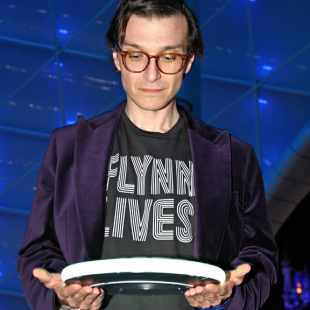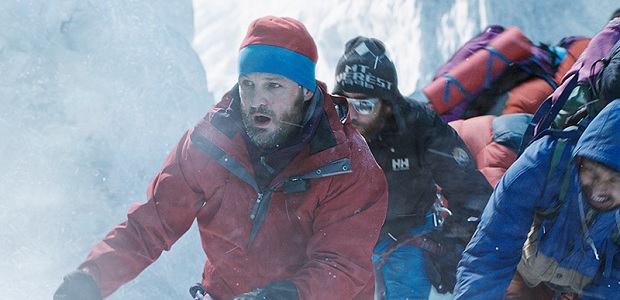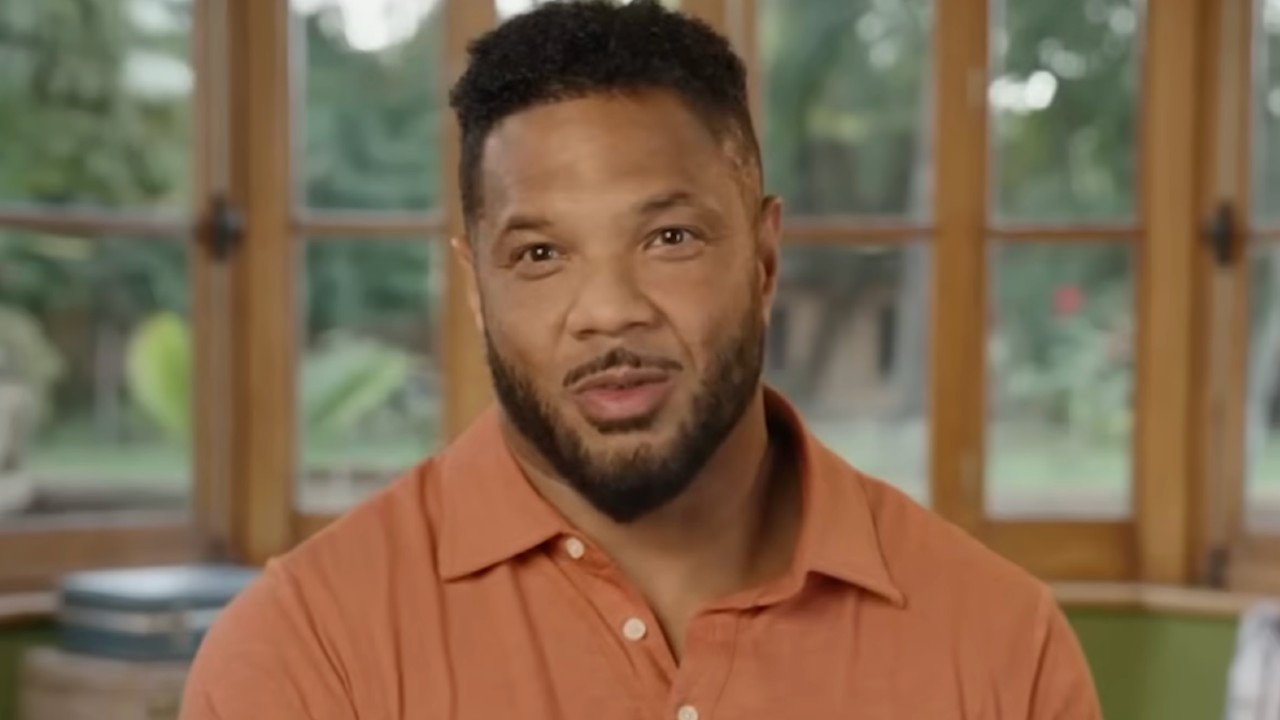Every year, usually in or around the fall movie season, historical epics tend to crop up on studio release schedules. Be it the intention to counterprogram the market to combat the glut of action and explosions the summer has brought, or be it the intent to score awards-season buzz in the closing months of the year, this is usually the time and place to release your historical movie. With Everest, Universal has raced the film market to the top of the heap (literally and figuratively), and has succeeded – though it does come at a cost.
Humanity loves to push itself to the extremes, and if there were any monuments to the risks some of us take in order to feel alive, Mount Everest would have to be among the top five. Rob Hall (Jason Clarke) and his team of climbers knew that when they went up in 1996, but as Hall reminded his team – they pay him a lot of money to get them back down again safely, not to get to the peak. Everest recounts the disaster that took the lives of several climbers’ lives almost 20 years ago, and for the most part, it is a compelling story of survival.
The major problem with Everest is that it’s missing a good portion of the first-act structure that’s typical for a historical disaster film of its ilk. While there are title cards explaining the history of climbing the legendary mountain, the film eschews the usual warm up period of introducing us to our main characters, and starts where most films such as this would get going – the inciting action of the historical event. This robs the film of most of the payoff that is to be had by the various setbacks, losses, and triumphs that occur during the film’s relatively light 121-minute run time. What should have been a tearful final phone call between a character and the loved one they left back home plays out a little more clinically, thanks to us not having enough time to fully identify with these characters.
However, Everest makes up for some of this lack of background by casting a damned fine ensemble of actors that you know and love, and it still uses them to the picture’s advantage. Jason Clarke’s portrayal of Rob Hall is an anchor to the impressive supporting cast, which features actors like Emily Watson, Jake Gyllenhaal, Elizabeth Debicki, Michael Kelly and John Hawkes. Each member of the overstuffed team manages to grab some of the spotlight, and when they do, it’s a delight that reminds us why we like these actors in the first place. With a bolstered first act, those actors would have been better served and could have made us weep; but considering what Everest gives us, they’re still aces.
Another area Everest manages to succeed is the sweeping scope of the film’s cinematography. Director of photography Salvatore Totino, who’s worked on numerous Ron Howard films in the past decade, makes his mark on the mountain with his command over the images we’re seeing. Between his images, and the visual effects work that’s been put into Everest’s total experience, it is a beautiful film to behold. Make no mistake about it, when everything hits the fan, you’re riveted to your seat with the action.
While Everest could have used a little more set up in the first act, it still makes for a compelling, heart-stopping experience that respectfully captures the real life drama of the 1996 disaster. Director Baltasar Kormakur has crafted a tense but gorgeous look at the spirit to survive at any cost. It is a slow, methodical journey that gets you to the top, but lets you find your own way down.
Your Daily Blend of Entertainment News

Mike Reyes is the Senior Movie Contributor at CinemaBlend, though that title’s more of a guideline really. Passionate about entertainment since grade school, the movies have always held a special place in his life, which explains his current occupation. Mike graduated from Drew University with a Bachelor’s Degree in Political Science, but swore off of running for public office a long time ago. Mike's expertise ranges from James Bond to everything Alita, making for a brilliantly eclectic resume. He fights for the user.

